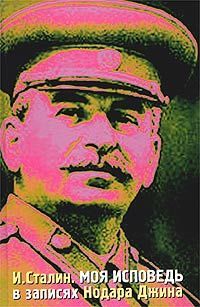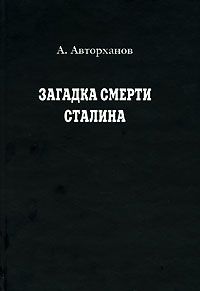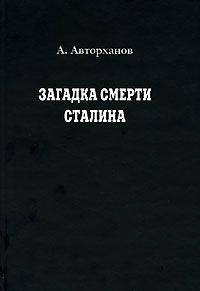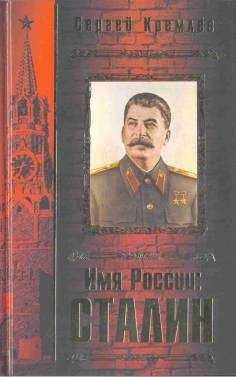Евгений Морозов - Интернет как иллюзия. Обратная сторона сети
The Clinton Internet Doctrine // Wall Street Journal, January 23, 2010. CNN Responds to Iranian Hacking Accusation // CNN.com, June 22,
2009. edition.cnn.com/2009/WORLD/meast/06/22/cnn.iran.claim/. Communicators with Alec Ross // C-SPAN, April 14, 2010. www.c-span-video.org/program/293002–1.
Communicators with Tim Sparapani // C-SPAN, March 8, 2010. www. c-spanvideo.org/program/292422–1.
Dabashi, H. A Tale of Two Cities // Al-Ahram Weekly, August 20, 2009. weekly.ahram.org.eg/2009/961/op51.htm.
Dickie, M. China Traps Online Dissent // Financial Times, Novem-ber 12, 2007.
Don’t Be Evil // New Republic, April 21, 2010.
Eltahawy, M. Facebook, YouTube and Twitter Are the New Tools of
Protest in the Arab World // Washington Post, August 7, 2010. Esfandiari, G. Authorities Warn Iranians Not to Protest // Transmis-sion Blog (RFE/RL), November 20, 2009. www.rferl.org/content/ Authorities_Warn_Iranians_Not_To_Protest_By_SMS/1883679. html.
Esfandiari, G. Iranian Social Networking, Hard-Line Style // Radio Free Europe/Radio Liberty, July 28, 2010.
Esfandiari, G. The Twitter Devolution // Foreign Policy, June 7, 2010. Esfandiari, G. Why Did Iran Unblock Facebook? // Radio Free
Europe/Radio Liberty, March 14, 2009.
Fassihi, Farnaz Iranian Crackdown Goes Global // Wall Street Journal, December 3, 2009.
Fax Against Fictions // Time, June 19, 1989.
Fresh Iran Hearing Focuses on “Internet Plot” // Press TV, September 14, 2009.
Fukuyama, F. The End of History and the Last Man. New York: Free Press, 2006.
Gapper, J. Technology Is a Tool for Revolution (and Repression) // Financial Times, June 20, 2009.
Gheytanchi, E., and B. Rahimi The Politics of Facebook in Iran // openDemocracy, June 1, 2009. www.opendemocracy.net/article/ email/ the-politics-of-facebook-in-iran.
Giroux, H. A. The Iranian Uprisings and the Challenge of the New Media: Rethinking the Politics of Representation // Fast Capitalism 5, no. 2 (2009).
Google Calls an End to Business as Usual in China // Age (Melbourne), January 18, 2010.
Gross, D. Awards Honor Top 10 Internet Moments of the Decade // CNN.com, November 19, 2009. cnn.com/2009/TECH/11/18/top. internet.moments/.
Hornby, L. China Paper Slams U. S. for Cyber Role in Iran Unrest // Reuters, January 24, 2010.
Houghton, D. P. The Role of Self-Fulfilling and Self-Negating Pro-phecies in International Relations // International Studies Review 11, no. 3 (2009): 552–584.
Internet “in Running” for Nobel Peace Prize // BBC News, March 10, 2010. Iran Hacked Twitter’s Database and Arrested Its Users // BBC Monitoring Media, January 17, 2010.
Iran Police Say Public Help in Arresting Rioters // Reuters, January 19, 2010.
Iran’s Police Vow No Tolerance Towards Protesters // Reuters, February 6, 2010.
Johnson, A. R. A Brief History of RFE/RL // Radio Free Europe/ Radio Liberty, December 2008.
Johnston, N. Twitter Gets Serious // Baltimore Sun, June 20, 2009. Kalathil, S., and C. B. Taylor Open Networks, Closed Regimes:
The Impact of the Internet on Authoritarian Rule. Washington, DC: Carnegie Endowment for International Peace, 2003.
Kaminsky, R. Iran’s Twitter Revolution // Human Events, June 18, 2009. Keohane, R. O., and J. S. Nye, Jr. Power and Interdependence in the Information Age // Foreign Affairs 77, no. 5 (1998): 81–94.
Kerry, J. Standing up for Internet Freedom // TPMCafe, Talking Points Memo, January 21, 2010. tpmcafe.talkingpointsmemo.com/ 2010/01/21/standing_up_for_internet_freedom/index.php.
Khiabany, G., and A. Sreberny The Politics of/in Blogging in Iran // Comparative Studies of South Asia, Africa and the Middle East 27, no. 3 (2007): 563.
Kimmage, D. Fight Terror with YouTube // New York Times, June 26, 2008.
Kirkpatrick, D. The Facebook Effect: The Inside Story of the Com-pany That Is Connecting the World. New York: Simon & Schuster, 2010.
Kristof, N. D. Tear Down This Cyberwall! // New York Times, June 17, 2009.
Krugman, P. Understanding Globalization // Washington Monthly, June 1999.
Lakshmanan, I. A. R. Supporting Dissent with Technology // New York Times, February 23, 2010.
Landler, M. Google Searches for a Foreign Policy // New York Times, March 28, 2010.
Landler, M., and B. Stelter Washington Taps into a Potent New Force in Diplomacy // New York Times, June 16, 2009.
Last, J. V. Tweeting While Tehran Burns // Weekly Standard, Au-gust 17, 2009.
Lee, T. The Cost of Hashtag Revolution // American Prospect, 2009, June 29.
McMillan, R. In Iran, Cyber-Activism Without the Middle-Man // Computer World, June 18, 2009.
Meet the Press. Transcript // MSNBC, May 23, 2010. Mungiu-Pippidi, A., and I. Munteanu Moldova’s “Twitter
Revolution” // Journal of Democracy 20, no. 3 (2009): 136–142. Musgrove, M. Twitter Is a Player in Iran’s Drama // Washington
Post, June 17, 2009.
News Roundup: Hour 2 // The Diane Rehm Show, WAMU, June 19, 2009. Pfeifle, M. A Nobel Peace Prize for Twitter? // Christian Science
Monitor, July 6, 2009.
Quinn, J. Iran Shuts Down Google Mail // Daily Telegraph, Febru-ary 10, 2010.
Revolutionbook // Financial Times, May 27, 2009.
Rhoads, C. Activists Skirt Web Crackdown to Reach the Outside World // Wall Street Journal, December 8, 2009.
Rutten, T. Tyranny’s New Nightmare: Twitter // Los Angeles Times, June 24, 2009.
Schleifer, Y. Why Iran’s Twitter Revolution Is Unique // Christian Science Monitor, June 19, 2009.
Schorr, D. In Iran, a Struggle over Cyberspace // All Things Consi-dered. National Public Radio, June 17, 2009.
Sheridan, B. The Internet Helps Build Democracies // Newsweek, April 30, 2010.
Shirk, S. L. Changing Media, Changing Foreign Policy in China //
Japanese Journal of Political Science 8, no. 1 (2007): 43–70. Sohrabi-Haghighat, M. H., and S. Mansouri “Where’s My
Vote?” ICT Politics in the Aftermath of Iran’s Presidential Election // International Journal of Emerging Technologies and Society 8, no. 1 (2010): 24–41.
Sreberny, A., and G. Khiabany Becoming Intellectual: The Bloge-stan and Public Political Space in the Islamic Republic // British Jour-nal of Middle Eastern Studies 34, no. 3 (2007): 267–286.
State Department Is Taking Right Steps to Foster Internet Freedom // Washington Post, July 21, 2010.
Stone, B., and N. Cohen Tweeting Their Way to Freedom? // New York Times, October 5, 2009.
Sullivan, A. The Revolution Will Be Twittered // Atlantic, June 13, 2009. andrewsullivan.theatlantic.com/the_daily_dish/2009/06/the-revo-lution-will-be-twittered-1.html.
Sullivan, A. Twitter Maintenance? // Atlantic, June 15, 2009. an-drewsullivan.theatlantic.com/the_daily_dish/2009/06/twitter-maintenance.html.
Tait, R. Iran Moves to Silence Opposition with Internet Crime Unit // Guardian, November 15, 2009.
Tehran Clashes Reported on Iran Vote Anniversary // BBC News, June 12, 2010.
Tehrani, H. Iranian Officials “Crowd-Source” Protester Identities // Global Voices, June 27, 2009. globalvoicesonline.org/2009/06/27/ iranian-officials-crowd-source-protester-identities-online/.
Viner, K. Internet Has Changed Foreign Policy for Ever, Says Gordon Brown // Guardian, June 19, 2009.
Weaver, M. Iran’s “Twitter Revolution” Was Exaggerated, Says Editor // Guardian, June 9, 2010.
Weaver, M. Oxfordgirl vs Ahmadinejad: the Twitter User Taking on the Iranian Regime // Guardian, February 10, 2010.
Webster, G. Street in Palestinian Refugee Camp Named After Twitter Account // CNN.com, October 5, 2009. edition.cnn.com/2009/ WORLD/meast/10/01/twitter.street/index.html.
Weisberg, J. Publishers Should Beware Apple’s iPad // Newsweek, May 15, 2010.
Winner, L. Autonomous Technology: Technics-Out-of-Control as a Theme in Political Thought. Cambridge, MA: MIT Press, 1978. Wired Nominates the Internet for the Nobel Peace Prize. Press release //
Internet for Peace, November 17, 2009. www.internetforpeace.org/ mediadetail.cfm?pressid=1.
Zia-Ebrahimi, R. Bombard Iran… with Broadband // Guardian, February 24, 2010.
Глава 2. С новым 1989 годом!Agenda. Conference on Cyber Dissidents: Global Successes and Chal-lenges. George W. Bush Institute, April 19, 2010.
Albrecht, H., and O. Schlumberger “Waiting for Godot”: Re-gime Change Without Democratization in the Middle East // Inter-national Political Science Review/Revue internationale de science politique 25, no. 4 (2004): 371.
Anderson, P. A Ripple of the Polonaise // London Review of Books,
November 25, 1999.
Arias-King, F. Orange People: A Brief History of Transnational Li-beration Networks in East Central Europe // Demokratizatsiya: The Journal of Post-Soviet Democratization 15, no. 1 (2007): 29–72.
Ascherson, N. The Media Did It // London Review of Books, June 21, 2007.
Ascherson, N. They’re Just Not Ready // London Review of Books January 7, 2010.
Barme, G. R., and Sang Ye. The Great Firewall of China // Wired, February 1, 1996.
Bennett, A. The Guns That Didn’t Smoke: Ideas and the Soviet Non-Use of Force in 1989 // Journal of Cold War Studies 7, no. 2 (2005): 81–109.
Bilalic, M., McLeod, P., and F. Gobet Why Good Thoughts Block Better Ones: The Mechanism of the Pernicious Einstellung (Set) Effect // Cognition 108, no. 3 (2008): 652–661.
Bildt, C. Tear Down These Walls Against Internet Freedom // Washington Post, January 25, 2010.
Bollinger, L. C. A Free Press for a Global Society // Chronicle of Higher Education, February 21, 2010.
Brooks, S. G., and W. C. Wohlforth Power, Globalization, and the End of the Cold War: Reevaluating a Landmark Case for Ideas // International Security 25, no. 3 (2001): 5–53.
Brown, C. History Ends, Worlds Collide // Review of International Studies 25 (1999): 41–57.
Brownback, Sam Twitter Against Tyrants: New Media in Authoritari-an Regimes // Commission on Security and Cooperation in Europe, October 22, 2009.
Bunce, V. J., and S. L. Wolchik Defeating Dictators: Electoral Change and Stability in Competitive Authoritarian Regimes // World Politics 62, no. 1 (2009): 43–86.
Burnell, P. From Evaluating Democracy Assistance to Appraising Democracy Promotion // Political Studies 56, no. 2 (2008): 414–434.
Campbell, J. L. Institutional Analysis and the Role of Ideas in Politi-cal Economy // Theory and Society 27, no. 3 (1998): 377–409. Carothers, T. The Backlash Against Democracy Promotion // For-eign Affairs 85, no. 2 (2006): 55–68.
Centeno, M. A. Between Rocky Democracies and Hard Markets: Di-lemmas of the Double Transition // Annual Review of Sociology 20, no. 1 (1994): 125–147.
Chen, C. Institutional Legitimacy of an Authoritarian State: China in the Mirror of Eastern Europe // Problems of Post-Communism 52, no. 4 (2003): 3–13.
Clinton, H. Remarks on Internet Freedom. The Newseum, Washington, DC, January 21, 2010.
Cohen, B. J. A Grave Case of Myopia // International Interactions 35, no. 4 (2009): 436–444.
Cohen, R. Target Iran’s Censors // International Herald Tribune, February 18, 2010.
Cox, M. Why Did We Get the End of the Cold War Wrong? // Bri-tish Journal of Politics & International Relations 11, no. 2 (2009): 161–176.
Critchlow, J. Public Diplomacy During the Cold War: The Record and
Its Implications // Journal of Cold War Studies 6, no. 1 (2004): 75–89. Critchlow, J. Western Cold War Broadcasting // Journal of Cold War Studies 1, no. 3 (1999): 168–175.
Crovitz, G. L. The Internet and Political Freedom // Wall Street Jour-nal, March 15, 2010.
Danyi, E. Xerox Project: Photocopy Machines as a Metaphor for an “Open Society” // Information Society 22, no. 2 (2006): 111–115. Ding, X. L. Institutional Amphibiousness and the Transition from
Communism: The Case of China // British Journal of Political Science (1994): 293–318.
Excerpts: Bush to Remain “Committed” to War on Terror // Washington Times, January 11, 2005.
Falk, B. J. 1989 and Post-Cold War Policymaking: Were the “Wrong” Lessons Learned from the Fall of Communism? // International Journal of Politics, Culture, and Society 22, no. 3 (2009): 291–313.
Feith, D. Senate to Hillary: Support Cyber Dissident // Wall Street Journal, July 23, 2009.
Fowler, G. A., and L. Chao L. U. S. Urged to Act on Internet Freedoms // Wall Street Journal, March 25, 2010.
Freedom vs. the Firewall; The Senate Can Help Fend Off Authoritarian Censorship // Washington Post, July 7, 2009.
Fukuyama, F. Our Posthuman Future: Consequences of the Biotech-nology Revolution. New York: Farrar, Straus and Giroux, 2002.
Fukuyama, F., and M. McFaul Should Democracy Be Promoted or Demoted? // Washington Quarterly 31, no. 1 (2008): 23–45. Garton, Ash T. 1989! // New York Review of Books, November 5, 2009. Gedmin, J. Democracy Isn’t Just a Tweet Away // USA Today, April 22, 2010.
Glassman, J. K. Statement on the Conference on Cyber Dissidents. George W. Bush Institute, April 19, 2010.




